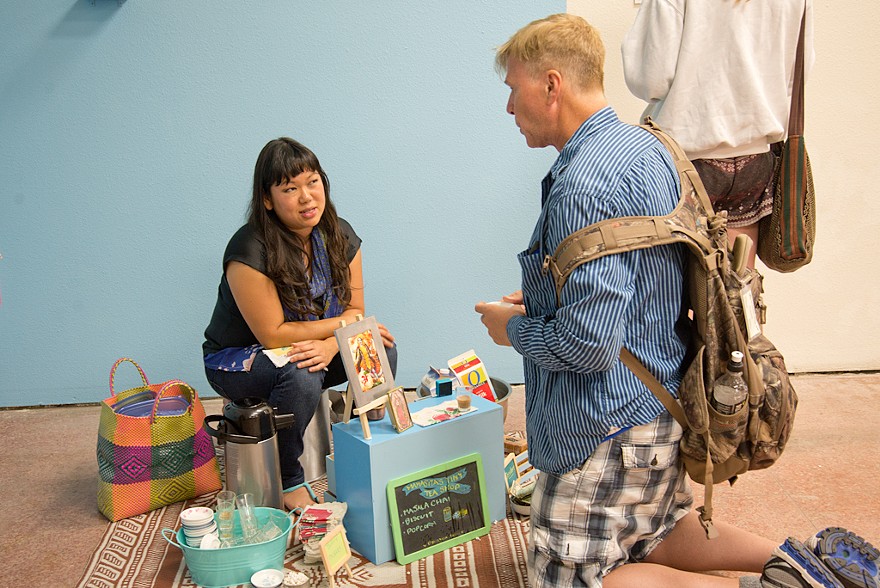
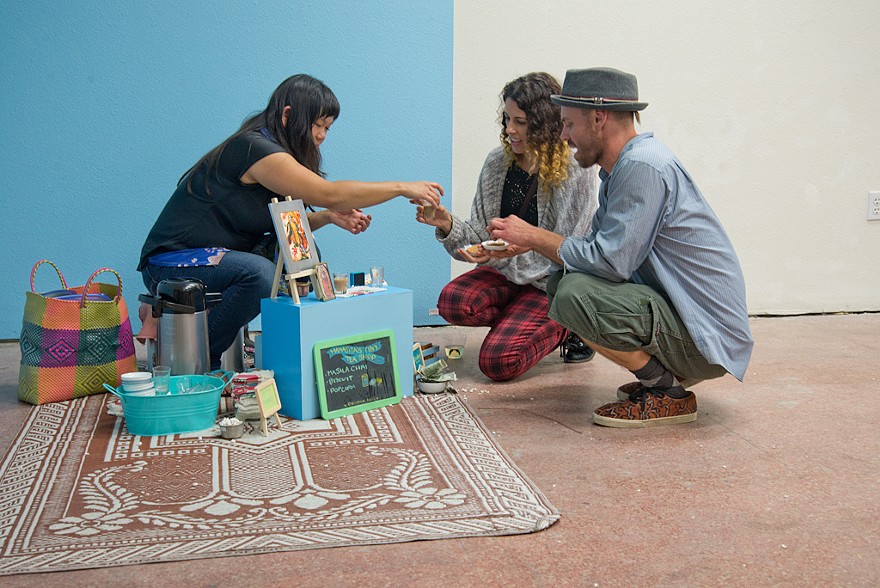
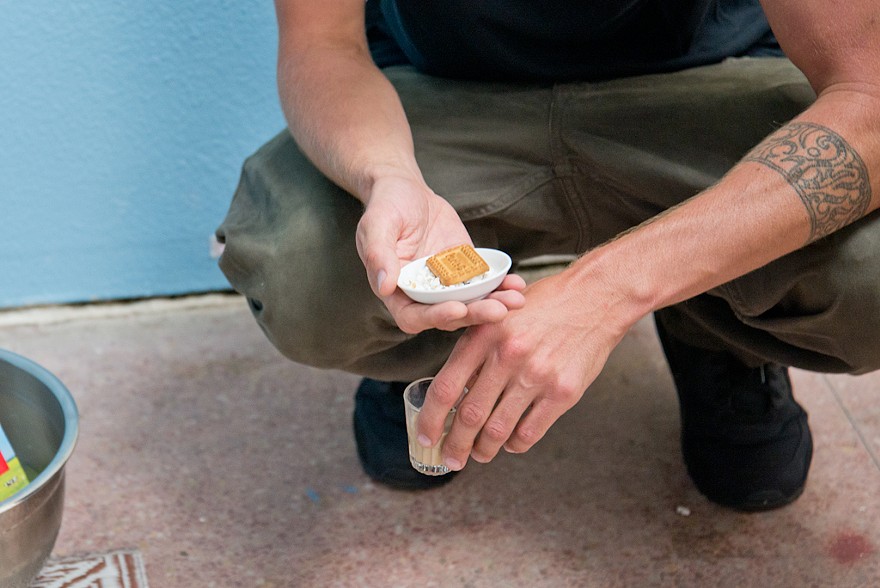
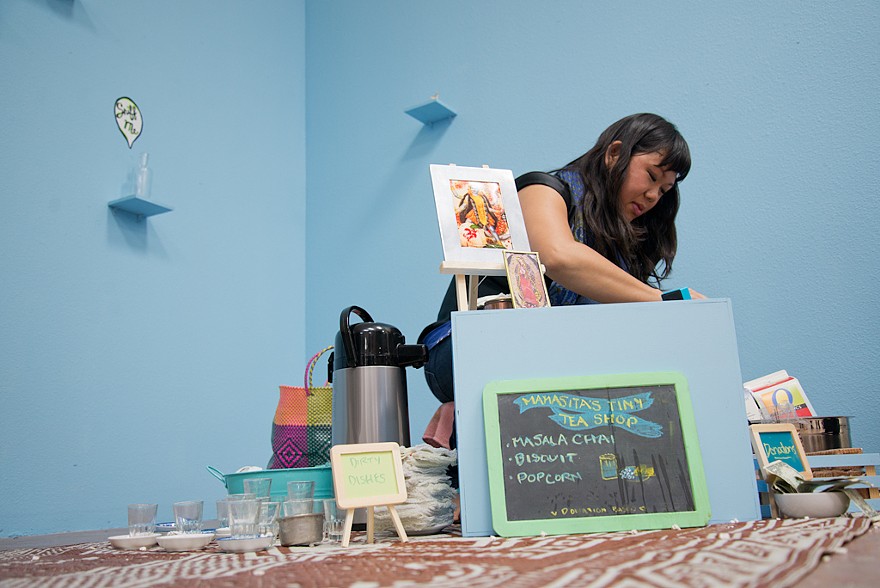
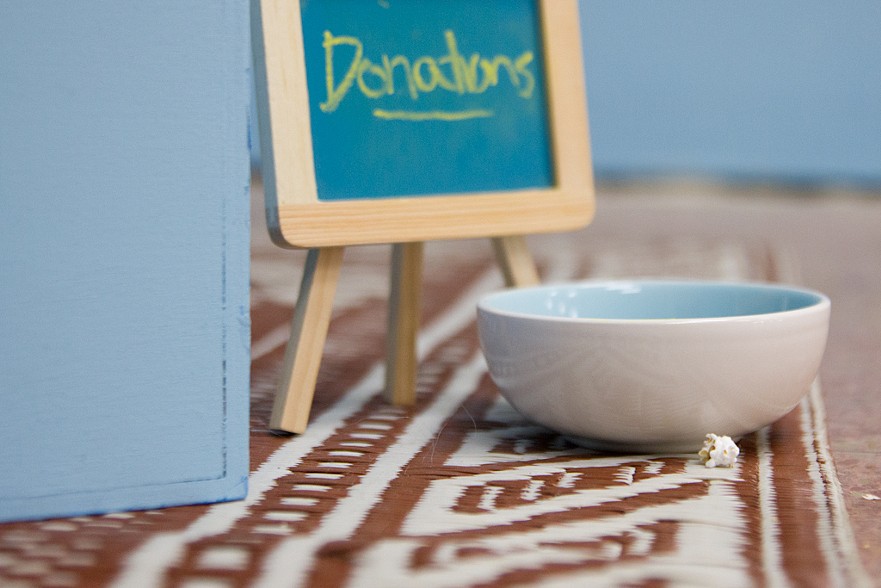
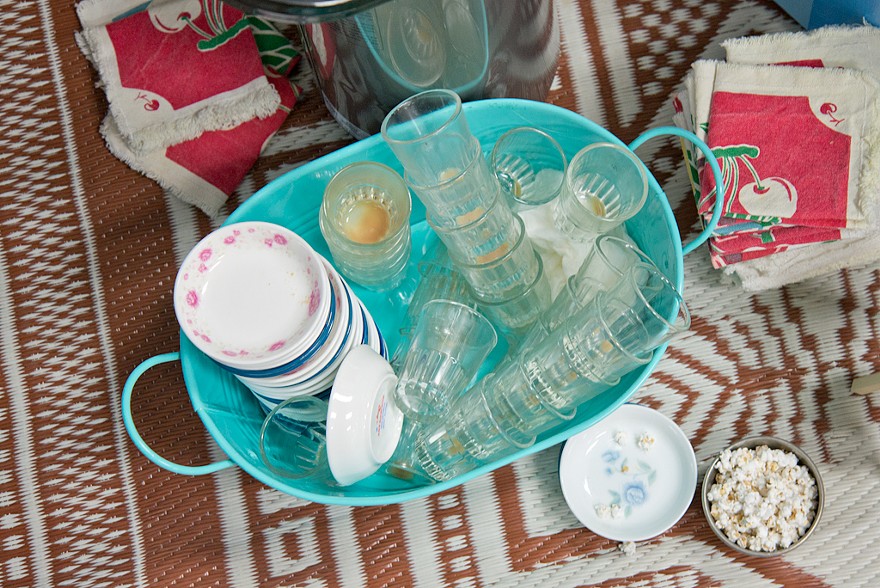
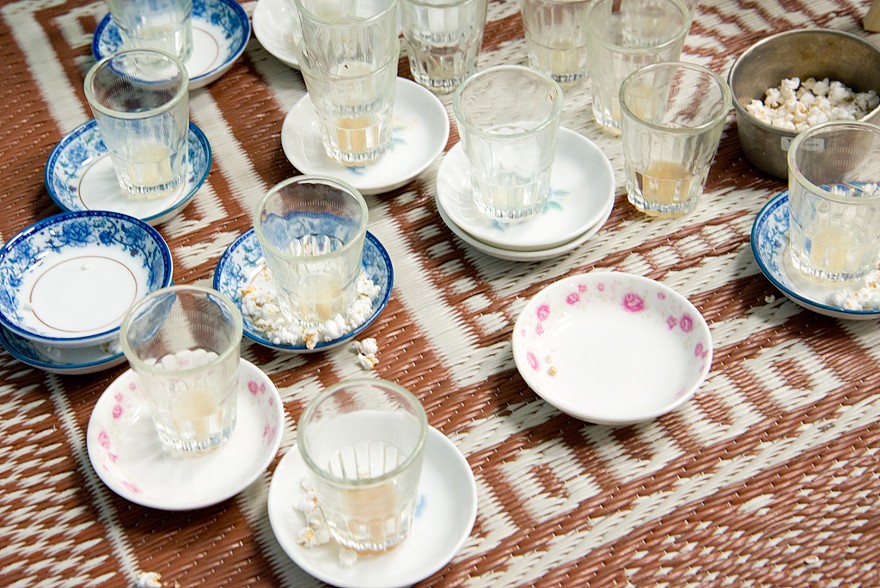
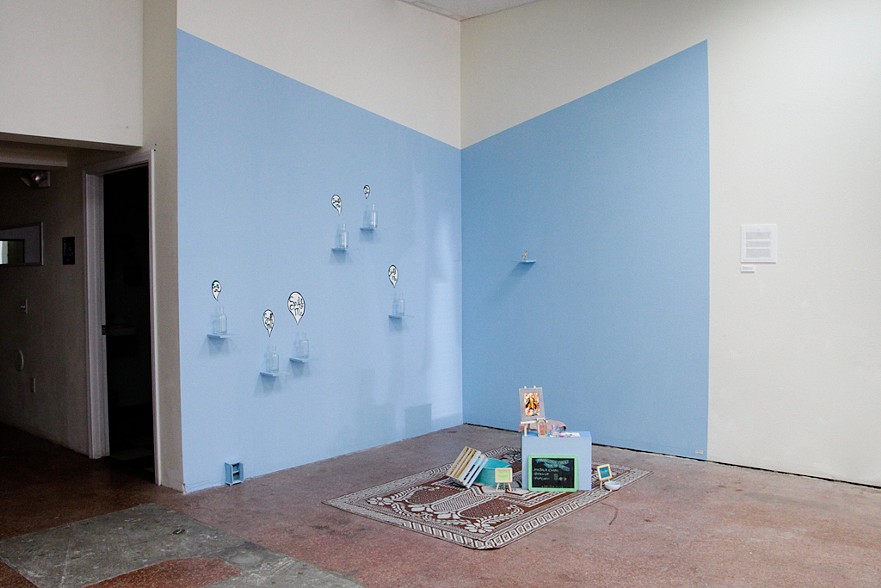
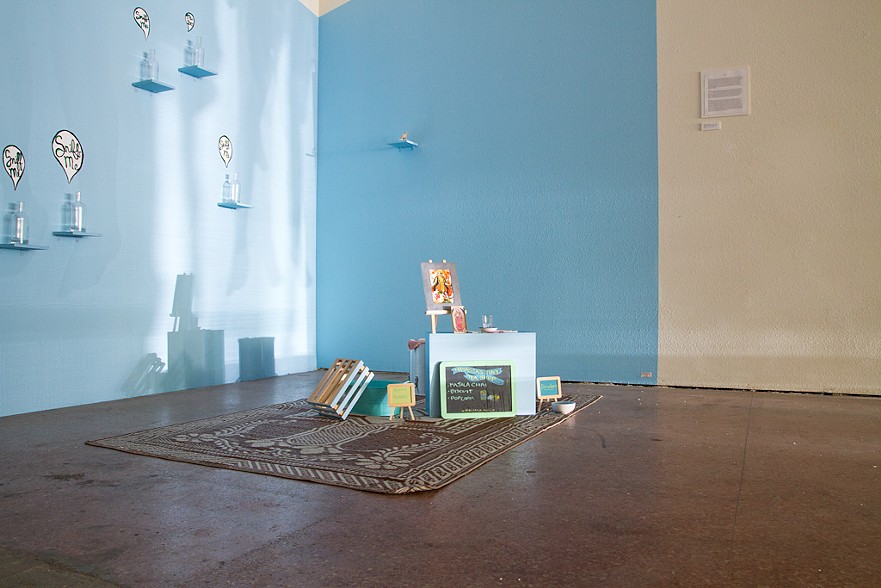

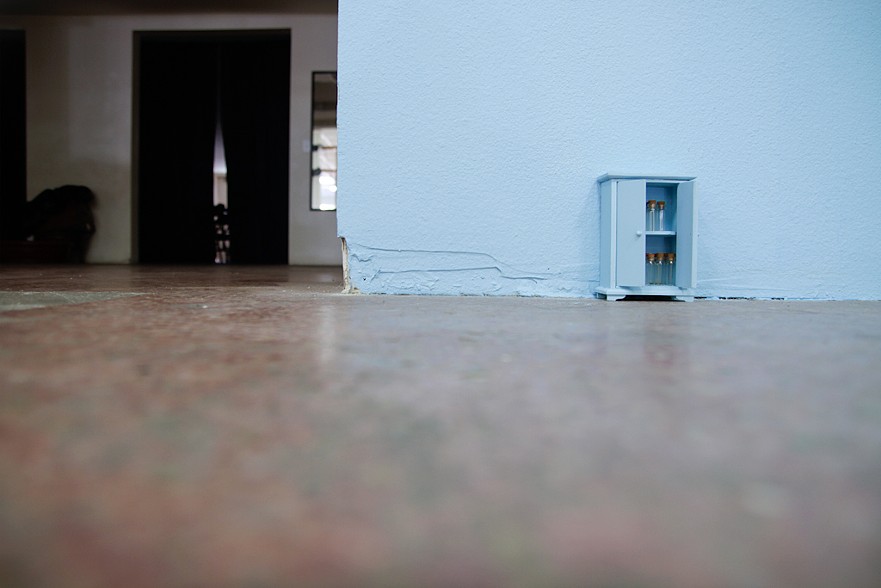
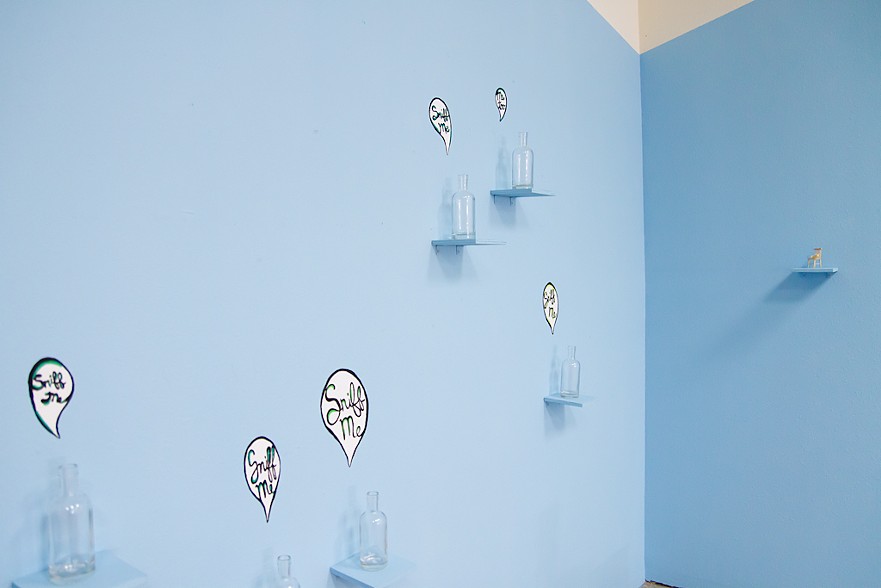
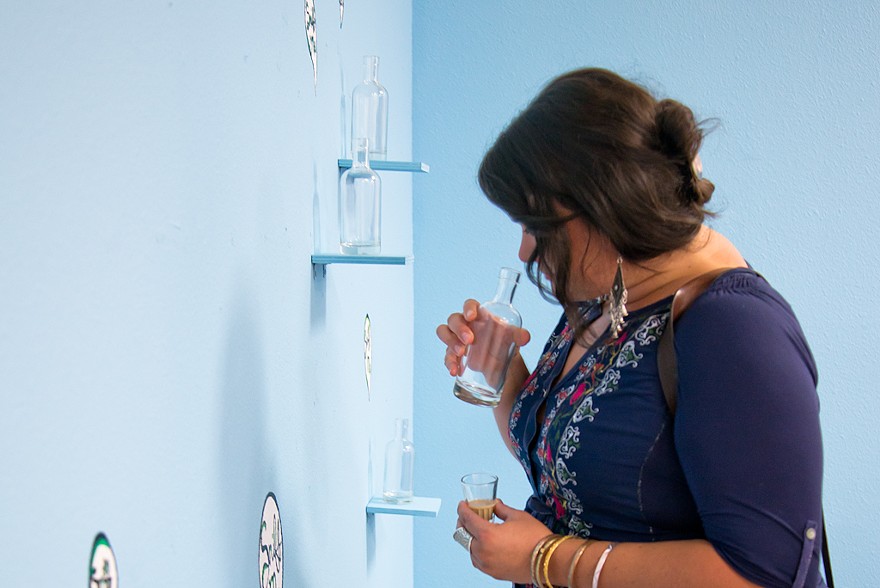
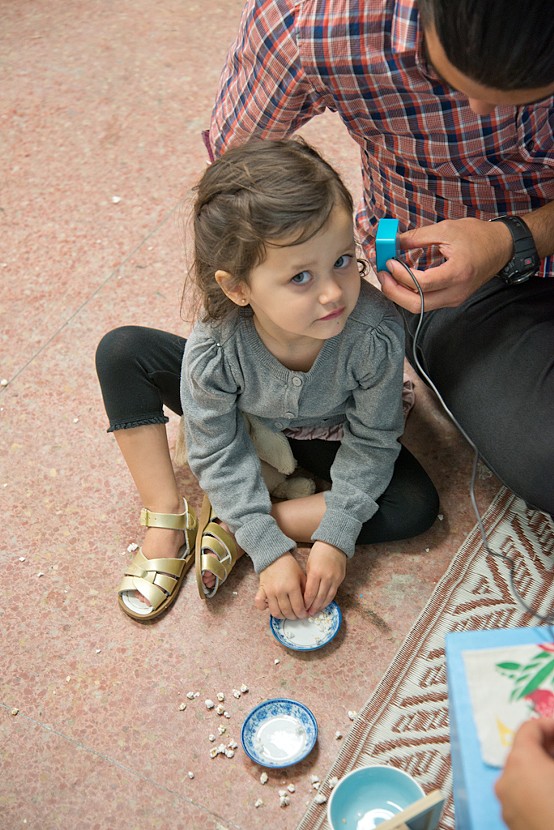
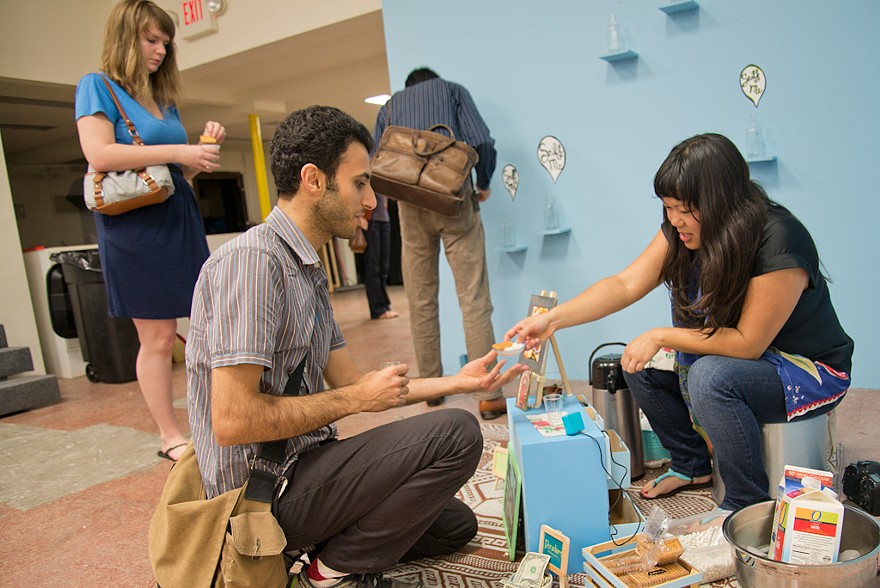

Alicia
Site specific installation including scent, glass bottles, paint, found and made objects, and audio
Dimensions variable, approximately 8'x8'x12'
Installed at the Cultural Alliance of Long Beach for The Rights of My Passage curated by Maria Guadalupe Torres
2013
Many thanks to Maya Taina Capalbo for documenting the opening of Mamasita's Tiny Tea House.
Part 1: Elizabeth
While we think of nothing more Indian than chai wallahs pouring sweet, milky cups of spiced tea, the practice of drinking the beverage was introduced by the British only sixty years ago. Once upon a time, in the mid-1700s, the British were hooked on tea but were entirely dependent on China for its supply. By the early 1800s tea was cultivated in India by the British in an attempt to break this Chinese monopoly. The British quickly noted that not only was there a huge potential for growing tea, but also for cultivating a billion Indian tea drinkers. A mass-scale British advertising campaign in the 1950s successfully made tea drinking an everyday necessity. The brilliant marketing scheme included the first in-home product demonstrations and the hiring of chai vendors on every train platform in the country. Today, India is one of the largest tea producers in the world with over 70% of the tea consumed within India itself. The practice of adding loads of spices, milk, and sugar thoroughly appalled the Tea Board of India (the marketing and regulatory company established by the British). This elixir is known and loved today as masala chai, or spice tea.
Part 2: Alice
Smack in the middle of this caffeine-fueled global takeover, Alice in Wonderland was written by Lewis Carroll. It was published in 1865 when the British Empire, also known as “the empire upon which the sun never sets,” controlled territories in the Middle East and Asia including Hong Kong and India. In the book, Alice longs for “a world of her own” and when she finally discovers Wonderland, she navigates the savage tea parties and hookah-smoking caterpillars with curiosity and a healthy superiority complex. Skip ahead a few dozen decades, and at the close of the 2010 Tim Burton film Alice in Wonderland, Alice claims her independence by sailing off to the colonies to take part in her father’s growing business endeavors in China. Alice’s coming of age -- and her assertion of power as a young woman -- is not-so-coincidently tied to the British Empire’s bottomless thirst for world domination and a nice cuppa.
Part 3: Alicia
My mother’s name is Alicia. Sometimes she tells people her name is Alice when she thinks it’ll create less confusion. My mother meant to study art in California for two years before continuing on to the motherland -- Japan -- and returning back home to Colombia. That was in 1969, which was also the year she met my father. She never left California. My father’s parents, who were visiting from West Bengal, lived with them for a few months. My grandmother and my mother would pantomime their way through the grocery store, my mother covertly opening everything in the spice aisle so that my grandmother could determine the masalas that she needed to buy. When my mother was at home with my grandfather he would often ask a puzzling question: “Would you take tea?” My mother would reply, “No thank you, I don’t want any tea.” She thought it very odd that a man whom she had never seen in a kitchen would offer to make her tea. After this ritual was repeated day after day, she realized that perhaps the question he was asking was not, in fact, the question he was asking. “Would you take tea?” he asked. She paused, and then asked, “Would you like some tea?” Without hesitation he replied, “Yes.” My mother was as satisfied with the answer as my grandfather was with his cup of tea.

